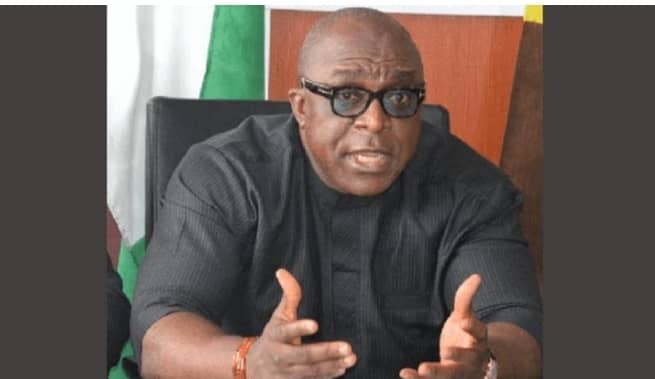Airline Operators of Nigeria has said the harsh operating environment and deductions by government agencies forces airlines to struggle with N15,000 for every N60,000 ticket sold to a passenger, ANAMBRA PEOPLE reports.
Obiora Okonkwo, the Chairman United Nigeria airline and spokesperson of Airline Operators of Nigeria (AON) disclosed this during an interview monitored on Arise Tv.
Nigerian airlines are battling with the scarcity of aviation fuel (Jet A1) which has seen prices raised to N640 in March 2022.
In February, the cost of aviation fuel rose from N350 per litre to N450 per litre.
Airlines have consequently increased air tickets by 100 per cent to N50,000 for economy tickets.
Operators had said that without urgent intervention, the price for an economy ticket may rise to N120,000.
Okonkwo who in January decried that the aviation sector was facing imminent collapse revealed that the situation has gone worse with the scarcity of aviation fuel.
He said, “For any ticket you sell, let’s say a ticket of N50,000, there are about 37 charges on that ticket
“Most of the passengers when they see this money, they think it all goes to the operator. Now there are about 37 charges. In fact, if you sell a ticket of N50,000 in the current day aviation fuel cost, you take away N25,000 to the market who have sold the fuel.
“Depending on the airline you are flying from, there is what we call the PSC- the Passengers Service Charge which is paid out of any airport. If you are flying out from MMA-2, you should be paying about N4,000 to N5,000, when you take it out it is N30,000 gone.
“Then you have your five per cent deduction for Nigerian Civil Aviation Authority (NCAA). You check it out and it is about N2,500.Then, you go to the Nigerian Airspace Management Agency (NAMA), then you go to all those places.
“So, at the end of the day, the N50,000 ticket or N60,000 ticket, the operator is left with about N15,000. This is the issue.”
The United Nigeria Airline boss said the relevance of the sector to the Nigerian economy demands the protection of airlines in the country.
Okonkwo said airlines account for about 500,0000 direct and indirect employment as well as hundreds of billions in revenue for the government.
He said air travel which is the safest considering recent terrorist attacks on road and rail infratsucture is not only for the elites.
According to him, airline lines are offering a national service which is misunderstood as ‘individual business’.
He said, “The challenges are still there. The airlines honestly are in big stress, but thank God that the operators of these airlines, the owners are quite patriotic, because they know the impact of air travel to our national security and the Nigerian economy.
“You just look at it today, the road is not safe, rail is not even safe, the only option available is air. So, that is why we are holding on, driving that process and negotiating, engaging, hoping one day and soon, there will be a common understanding.”






